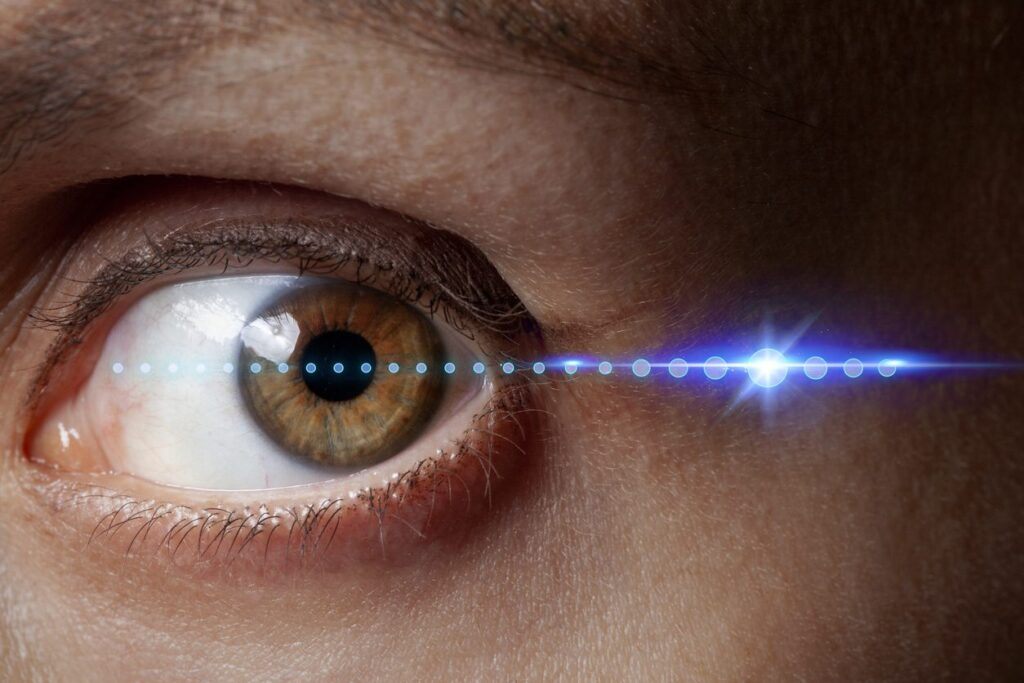At The Ranch at Dove Tree, we utilize a wide range of science-backed strategies to help people find relief from and better control over their thought processes. For many people, trauma is a core component of their alcohol and drug addiction and needs to be addressed during treatment. One way we do this is through EMDR therapy.
What Is EMDR Therapy?
Eye movement desensitization and reprocessing (EMDR) is a highly effective strategy for addressing traumatic memories. It is often used to treat post-traumatic stress disorder (PTSD) but may be used for other strategies as well. This mental health treatment aims to break the connection between a past memory or traumatic event and your current situation, helping you to move beyond that difficult memory or event.
How Does EMDR Work?
EMDR involves moving your eyes in a specific manner while you work through traumatic memories. It can also be utilized for the treatment of substance use disorders and eating disorders.
During this process, you work with your therapist to identify the troubling memory you have that could be at the heart of your trauma or substance use disorder. You’ll work through a set of stages in which you focus on that memory, identify the belief that you have about yourself that’s directly connected to that memory, and then create a positive belief to replace it.
While this occurs, you will discuss all of the emotions and physical sensations you had during that event or memory, doing so while focusing on an external stimulus. This creates bilateral eye movement. In some cases, this happens as you watch your therapist’s finger moving side to side in front of you. You repeat this process, discussing how you feel and moving forward. Eventually, the memory is no longer as traumatic or disturbing.
Why Does EMDR Work?
How can revisiting a past event via EMDR therapy make such a difference in the way you think about yourself? It often comes down to misbeliefs, unprocessed trauma, and the difficulty of looking back at that event with clarity.
With EMDR, both hemispheres of the brain receive stimulation. By focusing on the positive belief during this process, you are virtually replacing the negative belief. This happens due to the bilateral movement, which helps to “install” the new belief. During EMDR, bilateral stimulation helps to bypass the portion of the brain that has not processed the trauma, which keeps the brain from moving through the discomfort.
The process takes about an hour, and it can be repeated in several or many sessions as needed to feel improvement. You cannot take away what happened to you, but you can change the way you think and feel about it. Many people experience better insight into what occurred during that event and may even be able to let go of their long-held, negative thoughts about themselves and why that event happened to them.
Researchers believe EMDR is so effective because it is linked to the biological mechanisms that control rapid eye movement (REM) during sleep.
What Can You Expect from EMDR?
EMDR therapy helps your brain resolve the unprocessed trauma it experienced. What makes EMDR a bit different than what you would expect from cognitive behavioral therapy is that it does not aim to change the way you think. Instead, it focuses on changing the feelings associated with that memory.
Ultimately, our goal is to help you have better control over when you think about those events and how they impact your decisions today. For many people, EMDR is one of the most important strategies for improving their future because it lets the brain safely deal with the pain of the past.
Could EMDR Be Right for You? Reach Out to Our Team Today
EMDR therapy is one of numerous types of therapies available at The Ranch At Dove Tree. When you work with our team, we create an individualized treatment plan to address your specific needs. In doing that, we’re able to help you build a strong future.
If you struggle with trauma, drug or alcohol use, or other mental health disorders that are limiting your well-being, reach out to our team today. Call The Ranch at Dove Tree to speak to one of our admissions counselors for reassurance and support.






